Kakadu Traditional Owners warn ‘99-year marriage’ with Parks Australia at risk
A five-year fight over an illegal walkway has brought up dark memories of dispossession and voicelessness for Kakadu National Park Traditional Owners.
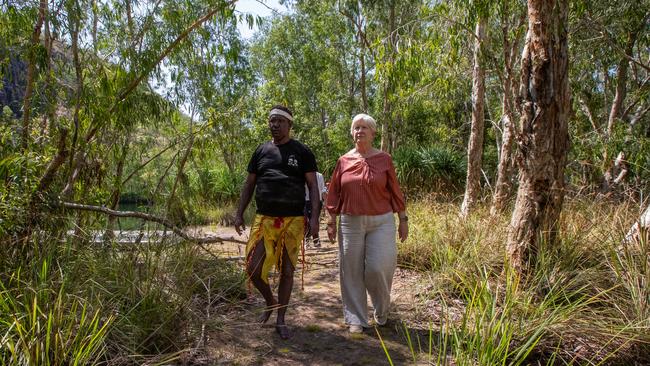
Indigenous Affairs
Don't miss out on the headlines from Indigenous Affairs. Followed categories will be added to My News.
A 30m deviation from a blueprint on Kakadu National Park has exposed the cracks of a troubled arranged ‘marriage’ between Traditional Owners and white settler laws and bureaucracy.
For the past five years Jawoyn leaders have been fighting Parks Australia after a walking track at Gunlom Falls brought tourists within 10m of a “hidden” men’s site.
The track opened in 2019, despite Jawoyn advising Parks to build the path a further 30m away.
During an on Country Local Court hearing in October, Parks Australia pleaded guilty to the illegal works and was slapped with a $200k fine, the largest ever sacred site penalty in the Territory’s history.
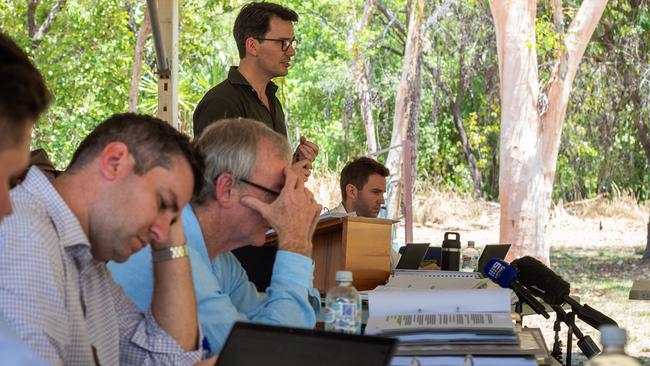
For the Jawoyn people the breach not only violated millennia of cultural law, it spoke to 100 years of dispossession and undermined faith in their 99-year lease “marriage”.
Bolmo clan senior man Joseph Markham told the court the new track near the men’s site put women and children at risk and threatened to wake a dangerous creation-era spirit.
Within the uranium, arsenic, mercury and lead rich lands of Kakadu’s Buladjang ‘sickness country’ was the sleeping place of Bula, whose awakening Mr Markham said would result in “Armageddon”.
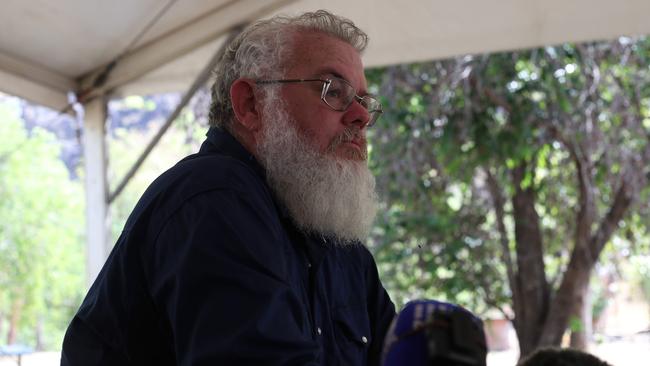
Mr Markham said the Jawoyn people had shared the sacred space of Gunlom with visitors to continue its role as a gathering place, yet the actions of Parks Australia brought up memories of powerlessness.
“It was an important meeting place … up until a hundred years ago the three clans were driven out of this area by miners, shooting at the Jawoyn people with rifles,” he said.
“We moved into town where it was safe and we weren’t getting shot at.
“We were scattered and disconnected, but we never lost our sacred connection”.
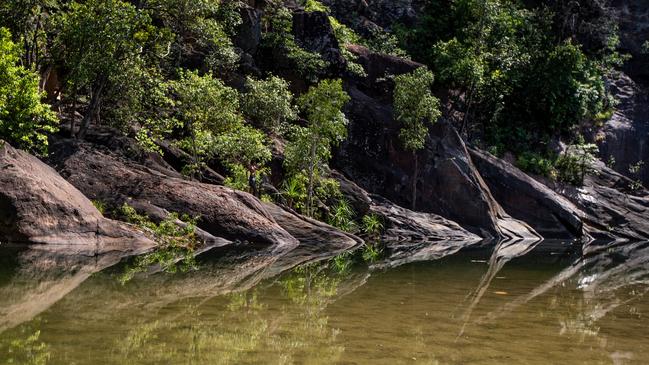
Bolmo clan woman Rachel Willika Kendino said she was 13 when she first touched Gunlom’s waters while on a school excursion from Barunga, 277 km north of the sacred site.
She said she did not know at that time that she was walking on her own country.
But the 1970s marked a shift for the Jawoyn people, who started to use the courts to fight for their country under the Land Rights Act.
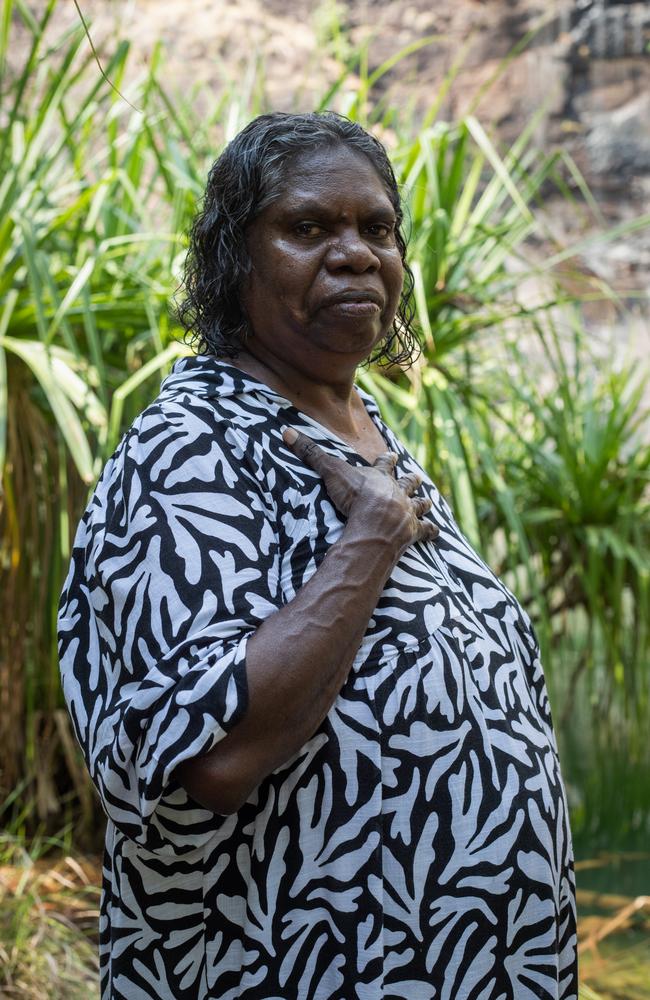
Wurrkbarbar and Matjba clan woman Bernadette Calma said she was there as her grandfather led anthropologists through Kakadu, and again as lawyers and judges descended on Gunlom in 1996 when the land was finally handed back.
So when Ms Calma had to tell her family about the sacred site breach five years ago, she felt like she had “failed my ancestors because they fought so hard to get Gunlom back and we couldn’t protect it”.
Following the illegal works Jawoyn closed Gunlom Falls in order to protect the site, which Ms Calma said sparked public “backlash”, with accusations they were being “greedy”.
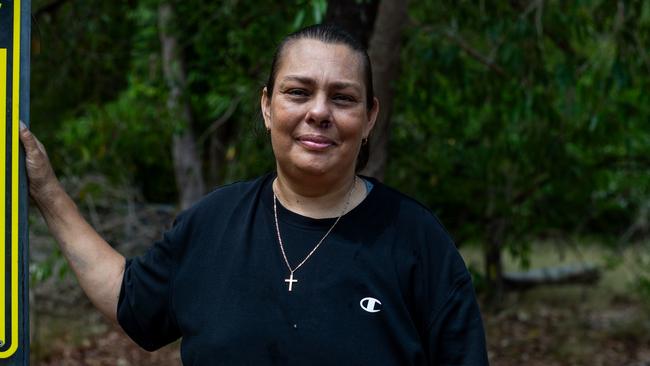
“If I went into their home or church and desecrated it, I would be charged and held responsible,” Ms Calma said.
“We shouldn’t have had to feel shame for protecting that place — it shouldn’t have been damaged in the first place.”
Ms Calma said it was a betrayal of the long-term lease agreement.
For some Jawoyn, Gunlom has inspired calls for a ‘divorce’ potentially radically shifting the World Heritage Site’s management.
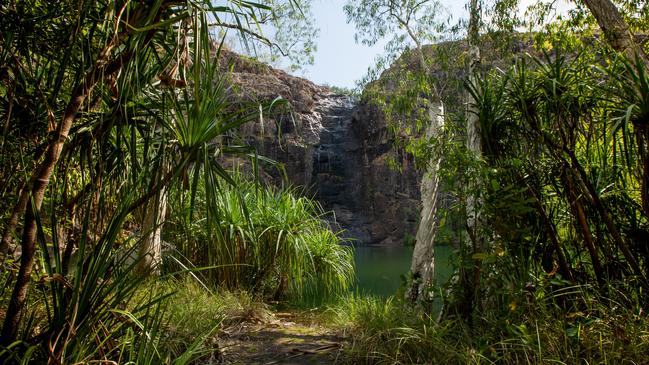
Wurrkbarbar clan senior man Joshua Hunter said Gunlom showed how “arrogant the system has come to be”.
“We won the land back, but had to hand it straight back over though the lease,” Mr Hunter said.
“The relationship with Parks Australia had been underwater for a while before these things happened.
“Gunlom Falls was so bad that the Jawoyn people threatened to cancel the leases for the Park, so that the whole Park would close down.”
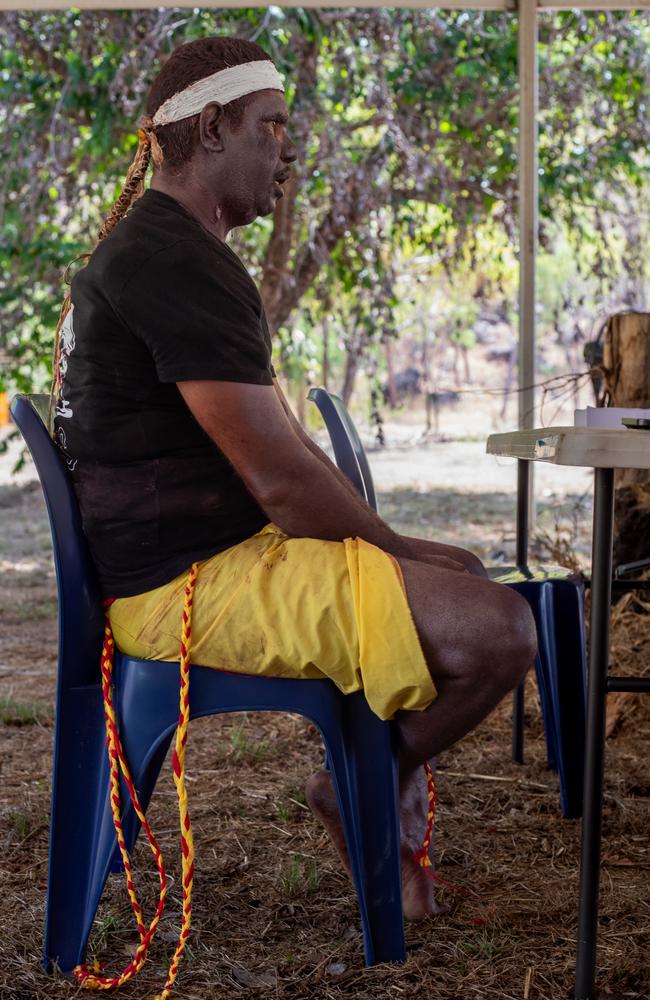
For Mr Markham the sacred site breach and five years of court battles brought up the turmoil his people had to survive.
“After being removed from our land and then fighting to have some say about our country, we became a voiceless people again with nothing,” he said.
Despite their hurt, all of the Jawoyn leaders said they were cautiously hopeful the relationship could be restored.
“(But) my hopes are not high, because we have been let down for a very long time,” Mr Hunter said.
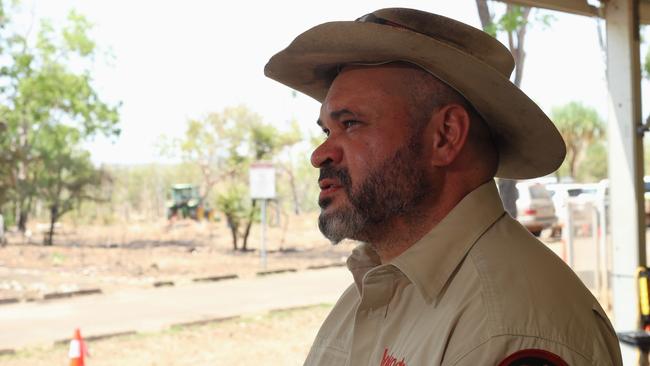
The new Director of National Parks Ricky Archer has promised to make rebuilding the agency’s relationship with traditional owners his “priority”.
The walkway now sits termite-ridden and unsafe to climb.
The Jawoyn people have committed to reopening Gunlom in 2025, giving time for the land, spirits and people to heal.
“When we cry, it cries too. It’s part if us, part of our creations. I still feel like it is hurting,” Ms Kendino said.
“It will be healed when we have lots of animals coming back, and fishes that we can gather and come together.”





